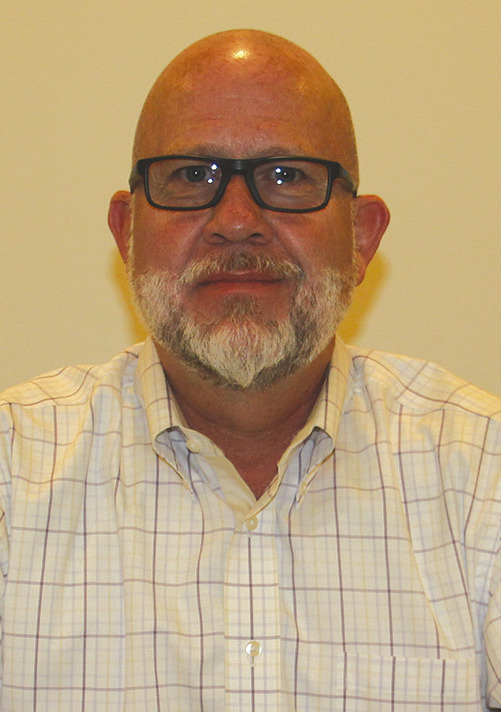NEWPORT — When Newport performed maintenance on 36 blocks of streets last year, Mayor Keith Campbell said the dust it kicked up was a pain for many city residents.
Campbell would know. His street was one of them.
“I’m suffering with the dust just like everybody else is, because it is what it is,” Campbell said. “We have to do what we have to do.”
Performing more of this maintenance is the third of Newport’s top three priorities for the city this year.
Newport’s second priority is repairing one of the water reservoirs. Its first is updating the wastewater system, which “has been and will continue to be one of the biggest budget challenges we face,” Campbell wrote in Newport’s 2025 annual budget.
Newport funded last year’s maintenance with an about-$200,000 grant from the state Transportation Improvement Board.
If the city had replaced instead of repaired the streets, Campbell said that $200,000 would have funded only one block of work. Replacement involves not just the street itself, but the infrastructure underground, such as water and sewer lines.
“The fact of the matter is we just don’t have the money,” Campbell said. “And we don’t get the money from the state to do that.”
Newport received another grant from TIB to do the same work on 44 more blocks this year.
Though the result may not be as “beautiful and perfect” as a brandnew street, Campbell said the maintained streets serve their purpose. The city has fewer potholes and plans to get rid of more this year. That includes the pothole on 2nd Street by River Mountain Village Assisted Living, where Campbell’s father lives.
“What this does is it allows us to have a hard, solid street, less potholes. And they will last,” Campbell said. The maintained streets are you heard that most people on Medicaid are already working, or unable to work because they are either disabled or caring for a family member? Such a requirement would put many of them at risk of losing coverage due to the difficulty proving eligibility through required paperwork.”

When asked — “if you heard that imposing such a requirement would have no significant impact on the share of Medicaid enrollees who are working, but would increase state administrative costs to oversee program eligibility” — a total of 40% supported work requirements.
And 77% supported work requirements when asked: “What if you heard that imposing such a requirement could ensure that Medicaid is reserved for groups like the elderly, people with disabilities, and low-income children?”
Federal v. state funding
KFF asked those polled if they support reducing how much the federal government pays for the program compared to how much states are expected to pay themselves.
“As you may know, under the Affordable Care Act, most states have expanded Medicaid,” the question begins. “Currently, the federal government pays at least 90 percent of the costs of this expansion with states paying the rest. There is a proposal that would significantly reduce the share that the federal government pays for this coverage. Would you support or oppose this reduction in the federal government’s contribution?”
A total of 59% of respondents opposed the proposal, but there was a majority of support among Republicans, 64% of whom backed the idea.
KFF asked the question about the federal match rate in different ways, getting different results each time.
Support for changing the federal rate for states that expanded Medicaid under the ACA dropped to 24% when asked: “What if you heard that most states wouldn’t make up the rest of the funding and many of the 20 million people who are covered by Medicaid under the Affordable Care Act expansion would lose their Medicaid coverage and become uninsured?”
Support rose to 49% when those polled were asked: “What if you heard that this change would reduce federal spending by $600 billion over 10 years?”
Little consensus in Congress so far
Republicans in Congress are far from reaching agreement on what exactly they’re going to do with tax policy or how they’ll pay for some of the $4.5 trillion increase in the deficit that would cause.
House Republicans approved a budget resolution in late February that proposes the Energy and Commerce Committee, which oversees Medicare and Medicaid, find $880 billion in savings over the 10-year budget window to help pay for tax cuts.
GOP lawmakers and Trump have repeatedly said they won’t change Medicare, though they are looking at Medicaid as one place to find savings.
But Republicans still have several steps to go before any changes to Medicaid could become law.
Republicans want to use the complicated budget reconciliation process to move their core policy goals through Congress without having to garner Democratic support to get past the Senate’s 60-vote legislative filibuster.
In order to unlock the reconciliation process, the House and Senate must agree to adopt the same budget resolution with identical reconciliation instructions.
They have yet to do that. The Senate is expected to take up the House’s budget resolution at some point, but it’s unclear how soon that might happen. When they do, several GOP senators plan on making changes to the reconciliation instructions in the House’s budget resolution and then sending it back to the other side of the Capitol for final approval.
What exactly Senate Republicans change will determine if Speaker Mike Johnson, R-La., will be able to rally enough support to adopt the amended budget resolution amid a razor-thin majority.
Final steps
After the House and Senate adopt a budget resolution, they can begin marking up the various sections of the bill in the numerous committees slated to get reconciliation instructions.
All of those bills will then be bundled together in one reconciliation package and sent to the floor for votes. While the House isn’t required to hold amendment votes on the floor, the Senate must under the reconciliation process.
That could lead to a ping-pong match of sorts between the two chambers as they try to figure out a compromise on their campaign promises.
The last time Republicans used the reconciliation process in 2017, they had much wider margins in the House, holding 241 seats at the time.
Getting the centrists and farright members of the party to support one sweeping package that is expected to include tax cuts and hundreds of billions in spending cuts — potentially including Medicaid — will be more challenging this time around, with the GOP holding just 218 seats at the moment.
.png)






